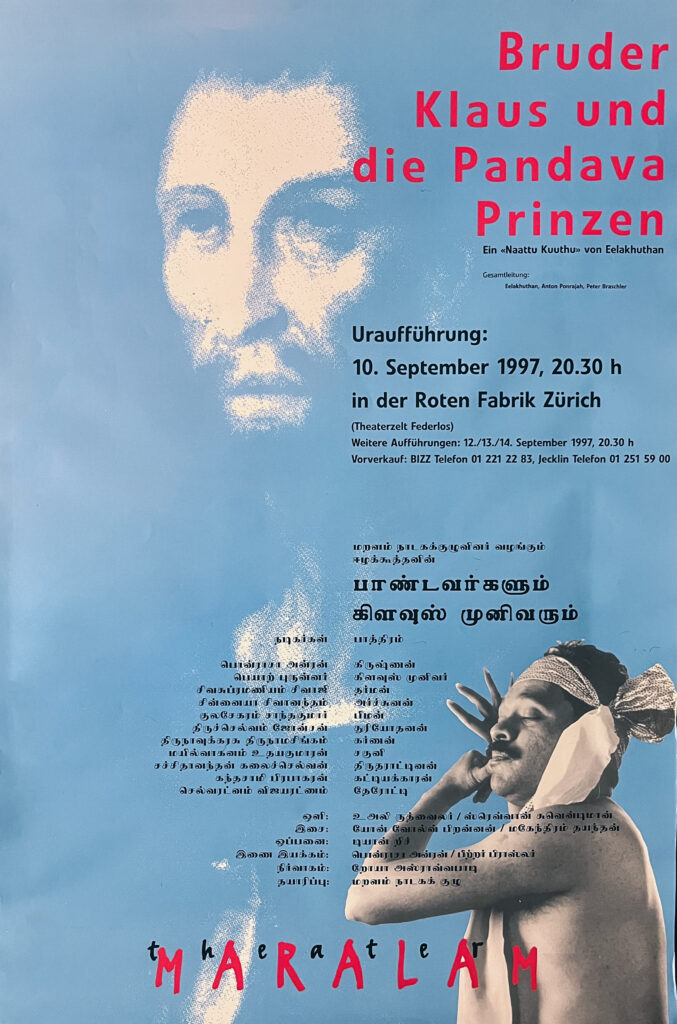THE ROAD TO WAR OR PEACE IS STILL OPEN
Brother Klaus and the Pandava Princes
A «Naattu Kuuthu» from Eelakhuthan
A world premiere play about stories from the MAHABHARATA and about the Swiss peacemaker and hermit BROTHER KLAUS; performed in the ancient South Indian Naathu Kuuthu form.
By Eelakhutan
Dramaturgy: Anton Ponrajah, Peter Braschler in collaboration with Eelakhutan.
EELAKHUTHAN, the Tamil theater master, creates his own poetic version of a part of the Mahabharata on issues of war and peace, prevention of war and peacemaking. Together with him, the Maralam Theater team interweaves a parallel story and comparable experience from the European region from the time of BRUDER KLAUS.
Two narrators/actors form the framework in which the Naatu-Kutthu form, one of the oldest ritual theater forms in the world, unfolds. The theme is presented in a humorous and serious way in relation to reality in the modern world, to the conditions of exile and in relation to the world here.





